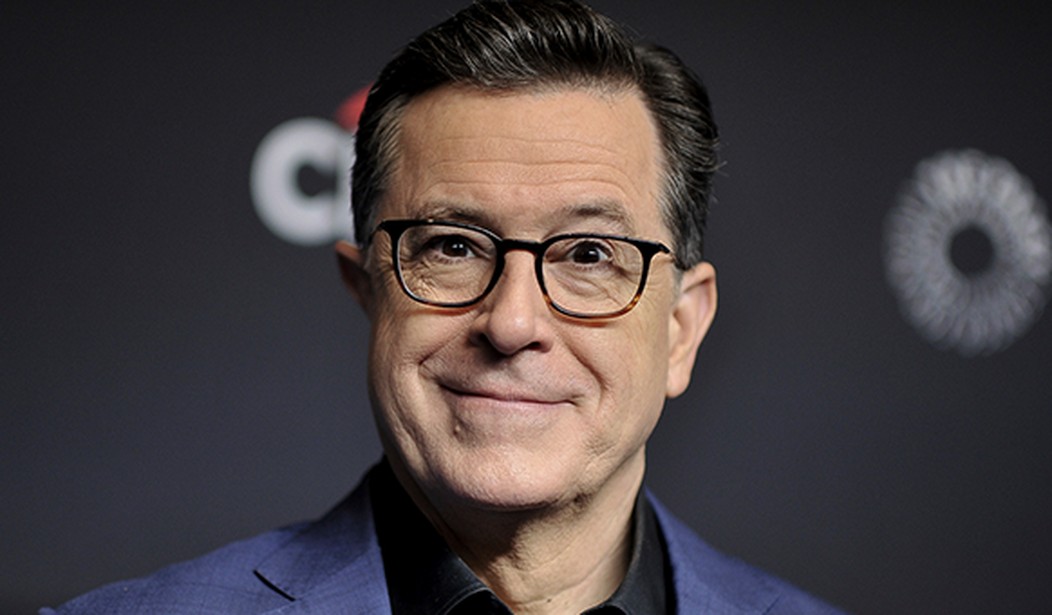The downfall of “The Late Show” is the natural result of a host who forgot his primary job: to entertain. And nothing proves that more than the left’s over-the-top reaction to the news. If Stephen Colbert were just a comedian, Democrats wouldn’t be in meltdown mode. But they didn’t see him as a mere entertainer—they saw him as a vital cog in the cultural machine that pushes their agenda through late-night TV. His cancelation isn’t just a programming change to them—it’s a strategic loss, and that’s why they’re panicking.
While Democrats shriek about political persecution following CBS's announcement that Colbert's show will end in May 2026, the truth is far more damning: Colbert presided over the systematic destruction of late-night television's business model, while convincing himself he was winning.
The political theater surrounding the cancellation was predictably absurd. Elizabeth Warren immediately declared that CBS canceled the show as retaliation for Colbert's criticism of Paramount's $16 million Trump settlement, calling it potential "bribery." Adam Schiff, who happened to be Colbert's guest when the cancellation was announced, demanded transparency about alleged "political reasons."
But these Democratic grandstanders are missing the forest for the trees. The real story isn't political persecution—it's the spectacular failure of a host who allowed his Trump obsession to blind him to the economic carnage happening under his watch, and failed to correct course to save his own career.
The numbers tell a devastating story that no amount of political spin can hide. "The Late Show" costs CBS approximately $100 million annually to produce, with Colbert himself commanding $15 million per year. Despite being the number-one rated program in its time slot, the show was hemorrhaging $40 million annually for the network. When your supposed success story is losing that much money, you're not really succeeding—you're failing upward while someone else pays the bills.
This wasn’t some abrupt collapse, no matter how loudly Bernie Sanders and the left-wing echo chamber scream “conspiracy.” While Sanders claimed the timing was no coincidence, industry insiders paint a very different picture. CBS had already approached Colbert before the current season even began, asking him to take a pay cut—executives were reportedly pleading poverty during negotiations. The financial bleeding wasn’t new; the network had been drowning in red ink for years, not days.
Colbert’s collapse is just the latest symptom of a dying industry—and anyone paying attention could’ve seen it coming. Late-night TV has been in free fall for years, with ad revenue across the top shows cut by more than half since its peak. "The Late Show" was no exception, suffering a massive drop in ad dollars that made its bloated production costs impossible to sustain.
The audience shift to streaming and social media has gutted the old late-night model. NBC trimmed “The Tonight Show” to four nights a week. “The Daily Show” is barely hanging on. CBS already pulled the plug on “The Late Late Show” and its replacement.
When you compare Colbert’s failure to David Letterman’s success, the contrast is stunning. Letterman launched “The Late Show” with blockbuster ratings and operated in a thriving, profitable ecosystem. Colbert, by contrast, rode the genre straight into the ground—a tragic handling of the legacy handed to him on a silver platter.
Colbert convinced himself that being number one, even as his show lost tens of millions of dollars annually, made him invincible. He mistook the echo chamber of liberal praise for genuine success while the business model crumbled beneath him.
Democrats demanding investigations into the cancellation are asking the wrong questions. The real inquiry should focus on how an entertainer making $15 million per year could preside over such spectacular financial failure while maintaining the delusion that he was somehow winning. CBS made the only rational decision available: they chose financial reality over sentiment.
Colbert's downfall represents more than just another canceled show—it's the market's verdict on expensive, linear television in the streaming age, delivered to a host too consumed with his own importance to see it coming.
And Democrats need to realize that.










